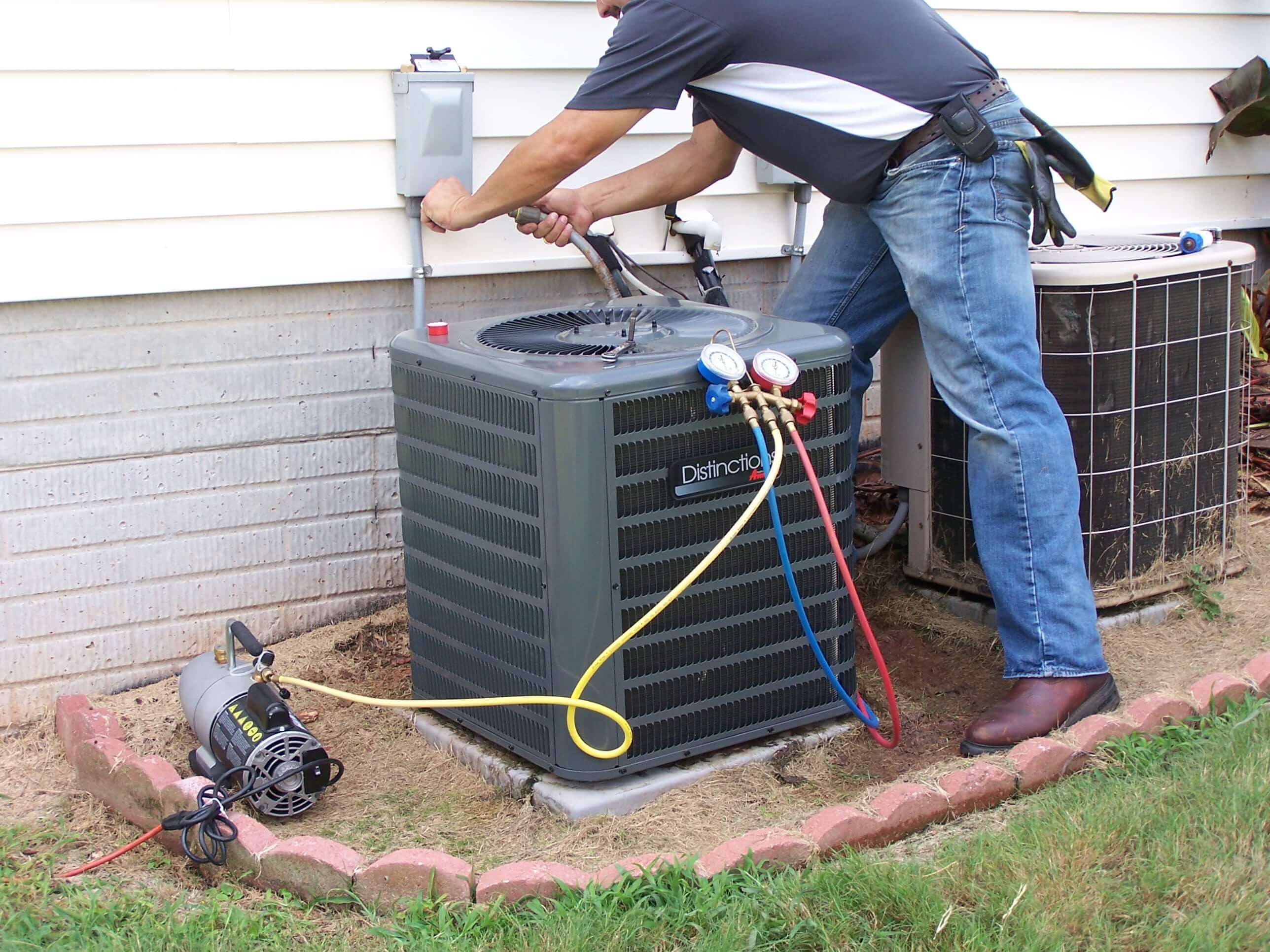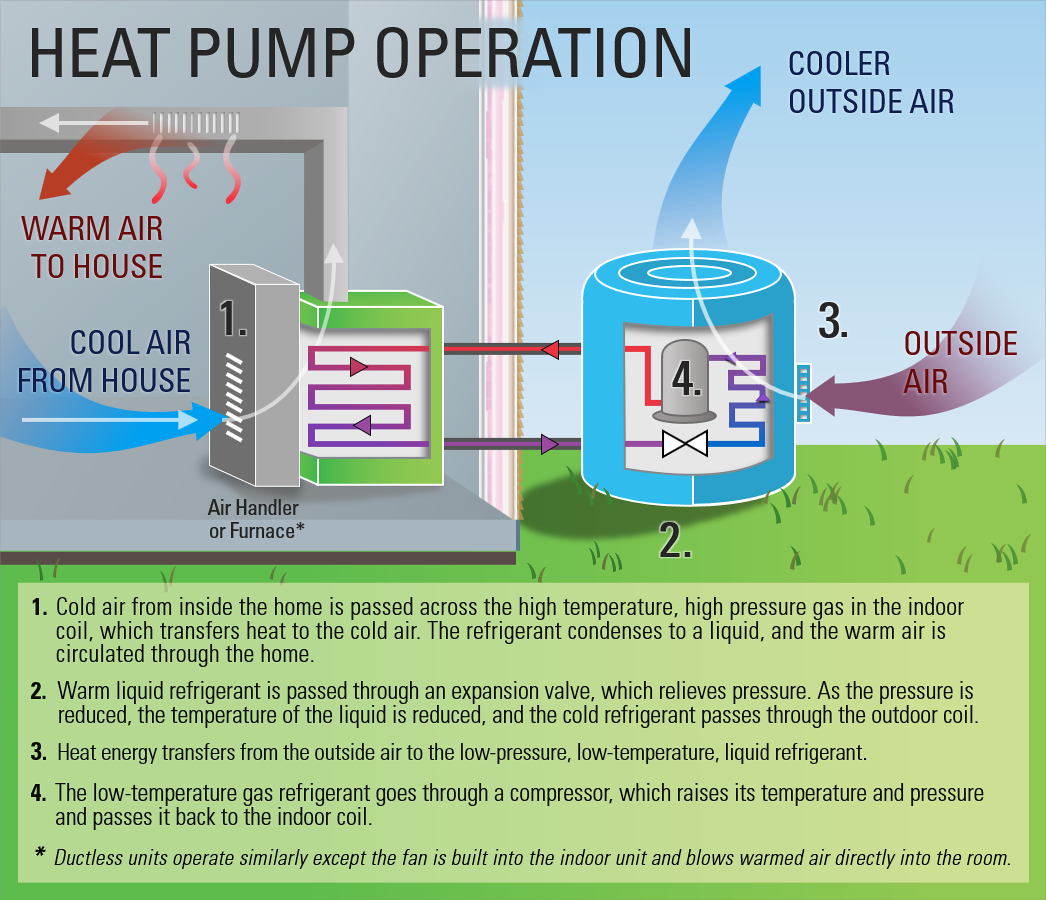Energy-Saving Tips for Your Air Conditioning Usage
The Scientific research of Cool: Exactly How Air Conditioners Job =================================================================
Picture your air conditioner as a master sculptor, skillfully chiseling away at the oppressive warm in your house, leaving behind an awesome, comfy oasis. Have you ever before asked yourself exactly how this modern wonder achieves such a feat?

The detailed dancing of refrigerants, coils, compressors, and ducts all work in consistency to develop that invigorating blast of cool air. But exactly how precisely do these elements integrated to produce that much-needed break from the sweltering heat?
Allow's reveal the internal workings of ac unit and debunk the scientific research behind remaining cool.
Key Takeaways
- Efficient Air conditionings use cooling agents to take in and release heat, boosting cooling and power effectiveness.
- Normal upkeep guarantees optimal performance, longevity, and energy savings.
- Correct sizing and layout stop energy waste and guarantee also cooling distribution.
- Understanding airflow dynamics and optimization enhances cooling effectiveness and convenience levels.
The Fundamentals of Air Conditioning
Comprehending the basics of cooling can greatly boost your understanding of exactly how these systems operate effectively. Power effectiveness is a crucial facet of a/c, as it not only impacts your electrical power costs however also the environment. Efficient ac system use much less energy to cool a space, making them cost-efficient and environment-friendly. By purchasing an energy-efficient unit, you can enjoy a comfortable interior setting while lowering your carbon impact.
Moisture control is another essential feature of cooling. Air conditioners help regulate the wetness levels in your home, creating a more comfortable environment. Excess humidity can cause mold and mildew development and discomfort, while low moisture levels can trigger dry skin and respiratory issues. A well-maintained ac unit can successfully control moisture, ensuring a healthy and balanced and pleasant living environment for you and your family members.
Recognizing just how a/c systems handle power effectiveness and moisture control can help you make educated choices when picking and utilizing these systems in your home.
Understanding Refrigerants and Their Function
When it involves ac system, recognizing refrigerants and their role is essential. You'll learn more about the value of cooling agents in cooling down systems and just how they promote the warm transfer process.
In addition, taking into consideration the ecological effect of cooling agents is crucial for sustainable cooling services.
Role of Refrigerants
Cooling agents play a crucial function in the operation of ac unit by helping with the transfer of warmth. The efficiency of a cooling agent straight affects the cooling process and power usage of the system.

When thinking about refrigerants, it's critical to weigh their performance against their ecological ramifications. Some cooling agents add to ozone depletion and international warming, prompting the search for greener alternatives. Lasting measures focus on finding cooling agent options that are energy-efficient and have minimal environmental impact.
Producers are significantly purchasing developing new cooling agents that line up with sustainability objectives. By focusing on refrigerant effectiveness and exploring lasting alternatives, the cooling industry aims to decrease its carbon footprint and lessen ecological damage.
Environmental Effect Factors To Consider
Thinking about the ecological impact of refrigerants is important in assessing the sustainability of cooling systems. When evaluating the ecological ramifications of air conditioning system, 2 vital variables to think about are energy efficiency requirements and carbon impact analysis.
- Energy Performance Criteria:
Energy-efficient a/c consume less electrical power, lowering total energy consumption and environmental effect.
Carbon Footprint Evaluation:
Performing a carbon footprint evaluation helps in understanding the quantity of greenhouse gas exhausts connected with cooling procedures.
Refrigerant Choice:
Opting for cooling agents with lower International Warming Prospective (GWP) can notably lower the environmental effect.
Correct Disposal:
Ensuring appropriate disposal of old refrigerants avoids them from hurting the setting.
Routine Upkeep:
Regular upkeep of a/c systems can boost effectiveness, decreasing power intake and ecological effect.
The Process of Warmth Transfer
When your air conditioning system operates, it relies upon a process of heat transfer to cool your room successfully. This mechanism includes the absorption of warmth from the interior air and the exchange of thermal power to preserve a comfortable temperature.
Understanding this important facet assists you understand exactly how ac system effectively control the environment in your home.
Heat Absorption Device
To efficiently cool down the air in your area, a/c unit employ a heat absorption mechanism that effectively moves warmth. This device plays an essential function in keeping temperature guideline and making use of advanced air conditioning innovation.
Below's just how the warm absorption process functions:
- Cooling agent Flow: The cooling agent absorbs warm from the interior air.
- Compression: The compressor raises the pressure of the refrigerant, triggering its temperature to climb.
- Condensation: The hot, pressurized cooling agent releases heat outside as it condenses into a liquid.
- Expansion Valve: This element lowers the cooling agent pressure, creating it to cool off and evaporate.
- Evaporation: As the cooling agent evaporates, it absorbs warm from the interior air, beginning the cycle anew.
Thermal Energy Exchange
In the process of thermal power exchange, warm transfer plays a crucial function in how air conditioning system work to cool down indoor areas properly. Thermal characteristics dictate that warm constantly moves from a warmer area to a cooler one. A/c take advantage of this principle by extracting warm from indoor air and launching it outside, making use of cooling agents to facilitate the transfer.
Efficient thermal power exchange is necessary for the energy efficiency of an air conditioning system. By enhancing warmth transfer processes, ac system can cool spaces effectively while reducing power intake. Understanding the dynamics of warm transfer is important for creating and operating ac system that offer the desired degree of convenience without unneeded power wastage.
Evaporator Coils and Their Function
Understanding the function of evaporator coils is crucial to grasping how air conditioning system efficiently cool down indoor areas. These coils play an essential function in the cooling process by soaking up warm from the indoor air, which is then flowed back as trendy air.
Below are some key points regarding evaporator coils:
- Evaporator coil performance directly affects the cooling performance of the ac unit.
- These coils include cooling agent that evaporates as it absorbs warm from the indoor air.
- As the cooling agent vaporizes, it transforms from a fluid state to a gas, cooling the air while doing so.
- The cooled down air is after that distributed throughout the area via the air ducts.
- Appropriate maintenance of the evaporator coils, such as routine cleansing, is vital to assure leading efficiency and power effectiveness.
Compressor and Condenser Procedures
Effectively cooling indoor spaces entails understanding exactly how the compressor and condenser interact in an a/c system. Residential AC unit installation The compressor plays an essential function in the cooling process by pressurizing the cooling agent gas, enhancing its temperature and energy level. This high-energy gas after that streams to the condenser, where it launches heat to the surrounding atmosphere, creating it to condense into a high-pressure fluid.
The condenser better cools this liquid with warmth exchange with the outside air, transforming it back into a low-pressure gas. This process enhances energy performance and increases the system's cooling power. Temperature guideline is accomplished as the refrigerant cycles through these system parts, taking in heat inside your home and launching it outdoors.
Air Ducts and Air Circulation
To enhance air movement and assurance regular cooling throughout your room, correct setup and maintenance of air ducts are crucial. Making sure that your air ducts are developed effectively and in a way that advertises excellent air movement characteristics is important for the general performance of your a/c system. Air flow strategies play a considerable duty in preserving interior comfort degrees, so it is essential to take note of the following:
Duct Layout: Effectively created duct aid make certain that trendy air gets to every corner of your area efficiently.
Air movement Dynamics: Understanding exactly how air relocations through the ducts can assist you identify any prospective problems that might disrupt the cooling process.
Normal Upkeep: Maintaining your duct clean and without blockages is necessary for maintaining air movement and system efficiency.
Sealing Leaks: Making certain that there are no leaks in your ductwork helps avoid awesome air from leaving, boosting power performance.
Balancing Air flow: Appropriately balancing the air flow in various rooms can assist preserve regular cooling throughout your home or office.
Frequently Asked Inquiries
How Does the Dimension of an Ac Unit Affect Its Performance and Cooling Ability?
When selecting an air conditioner, remember that dimension issues. An unit that's also little might battle to cool your space effectively, while a large one may squander power and not evaporate properly. Making sure proper sizing factors to consider will improve performance and cooling capacity.
The right size directly influences efficiency, aiding you stay comfy without unnecessary expenses. So, when it pertains to a/c unit, remember dimension for finest efficiency and cooling power.
What Are Some Typical Maintenance Tasks That Can Aid Improve the Lifespan of an A/c?
Routine maintenance tasks can considerably expand the life of your a/c. Keep in mind to replace filters to assure proper air flow and clean coils to enhance cooling effectiveness.
Furthermore, calibrate your thermostat for exact temperature readings and check the refrigerant levels for ideal efficiency.
Can Air Conditioners Be Used combined with Other Air Conditioning Approaches, Such as Fans or Dehumidifiers?
Yes, you can enhance your air conditioning experience by incorporating your a/c with followers. This collaboration can assist distribute awesome air better, providing a much more comfortable setting and potentially conserving power.
Furthermore, making use of a dehumidifier together with your ac unit can increase cooling down performance by lowering humidity levels, making your space feel cooler.
Think about these alternatives to optimize your cooling configuration and enhance your general convenience throughout hot days.

Exist Any Kind Of Ecological Worries Connected With making use of Air Conditioners, and Exactly How Can They Be Mitigated?
When making use of ac unit, bear in mind environmental problems like energy consumption and greenhouse gas emissions.
To alleviate these problems, take into consideration sustainable cooling techniques and green alternatives.
You can minimize the impact of air conditioners by utilizing energy-efficient models, keeping them frequently, and integrating various other cooling methods like followers or dehumidifiers. Air conditioner troubleshooting
What Improvements Are Being Made in Cooling Technology to Make Systems Extra Energy-Efficient and Eco-friendly?
To make air conditioners extra energy-efficient and environmentally friendly, advancements like clever technology and green features are being developed. These advancements focus on raising power savings and minimizing environmental impact.
By including smart technology, air conditioning devices can maximize performance based upon use patterns. The use of green products and parts likewise contributes to making these devices more sustainable.
These developments intend to boost efficiency while decreasing the environmental impact of a/c technology.
Conclusion
So, now you know exactly how air conditioning unit function!
From the refrigerants flowing with the system to the warm transfer procedure, each element plays a vital duty in keeping you cool.
The evaporator coils take in warm, the compressor and condenser release it, and the duct distribute the amazing air throughout your area.
Next time you switch on your air conditioner, remember the science behind everything! Keep trendy!